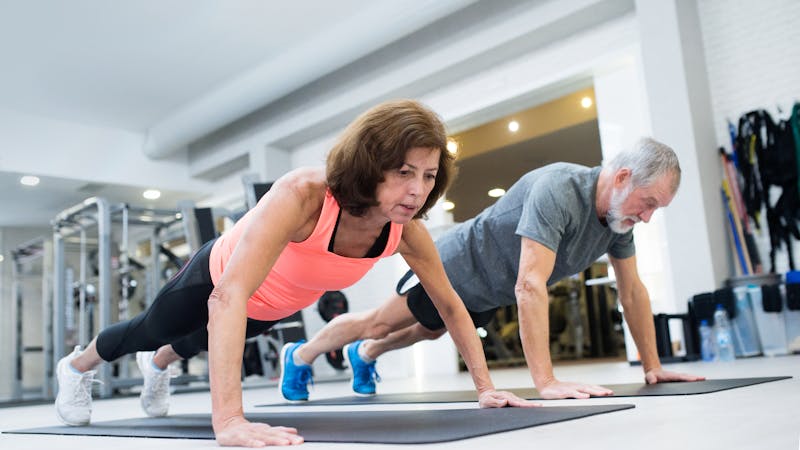Does the timing of exercise matter?
If you’re going to exercise, should you do it first thing in the morning or later in the afternoon?
That’s the topic Diet Doctor Medical Director Dr. Bret Scher, MD, dives into in this week’s DD News video.
In the video, Dr. Scher analyzes and explains research from the Netherlands, which concluded that afternoon exercise has a greater impact on metabolic markers. Earlier this year, The New York Times summarized the Dutch researchers’ 2020 findings in a popular column.
The New York Times: The best time of day to exercise
The Dutch researchers ostensibly found that exercising in the afternoon, as opposed to first thing in the morning, resulted in better metabolic health improvements in overweight and obese men. The New York Times called it a “useful study” and said: “The results add to growing evidence that when we exercise may alter how we benefit from that exercise.”
“These articles really got my attention,” explains Dr. Scher. “Everyone wants to maximize their exercise efficiency.”
But could the study, and the newspaper, come to that definitive conclusion?
Unfortunately, no, says Dr. Scher. “The whole point of my video is to explain why the study was not designed to answer this question.”
Dr. Scher notes the study had many issues that make it lower quality science, including that the participants were not randomly assigned, but self-selected their exercise times.
Additionally, the researchers did not control for many other variables, such as whether the participants were eating a low- or high-carb diet, how much they ate, or whether they worked out in a fasted or fed state.
However, in the video, Dr. Scher rounds up the other, higher-quality randomized studies that did look at exercise and the time of day, as well as the results of exercising in a fed or fasted state.
Those studies show that working out fasted has more impact, and it is best to fit exercise into the time of day that is right for you and your schedule.
“I’d rather see somebody exercise in a fasted state and eat low carb throughout the day without feeling like you have to fuel up or make up for those calories that they burn. That way, you can burn more fat, you can deplete your glycogen stores more, and that’s going to likely improve insulin sensitivity throughout the day,“ he says.
“So pick the time that you exercise that’s going to work best for you. If you have flexibility, and you can do it before you eat, that’s great.”
Each week, Dr. Scher takes a scientific study in the fields of nutrition, exercise, or health, or disease and carefully analyses the researchers’ methods and findings. In doing so, he helps you better understand how to judge the quality of various research papers and make informed decisions about your own health and wellness actions.
You can find more of Dr. Scher’s weekly engaging and informative news videos here, on the DDNews Youtube Channel. Subscribe to the feed so that you don’t miss any of his videos.


